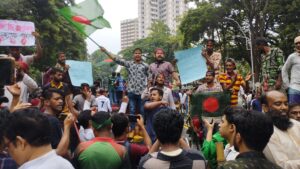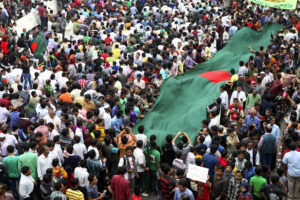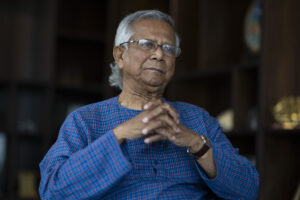

January 2025, Volume 36, Issue 1
The Return of Politics in Bangladesh
The student movement that toppled Bangladesh’s longtime autocratic ruler wants more than a return to the old order. These young revolutionaries are seizing a chance to start anew. How and by whom will the country’s future be decided?


